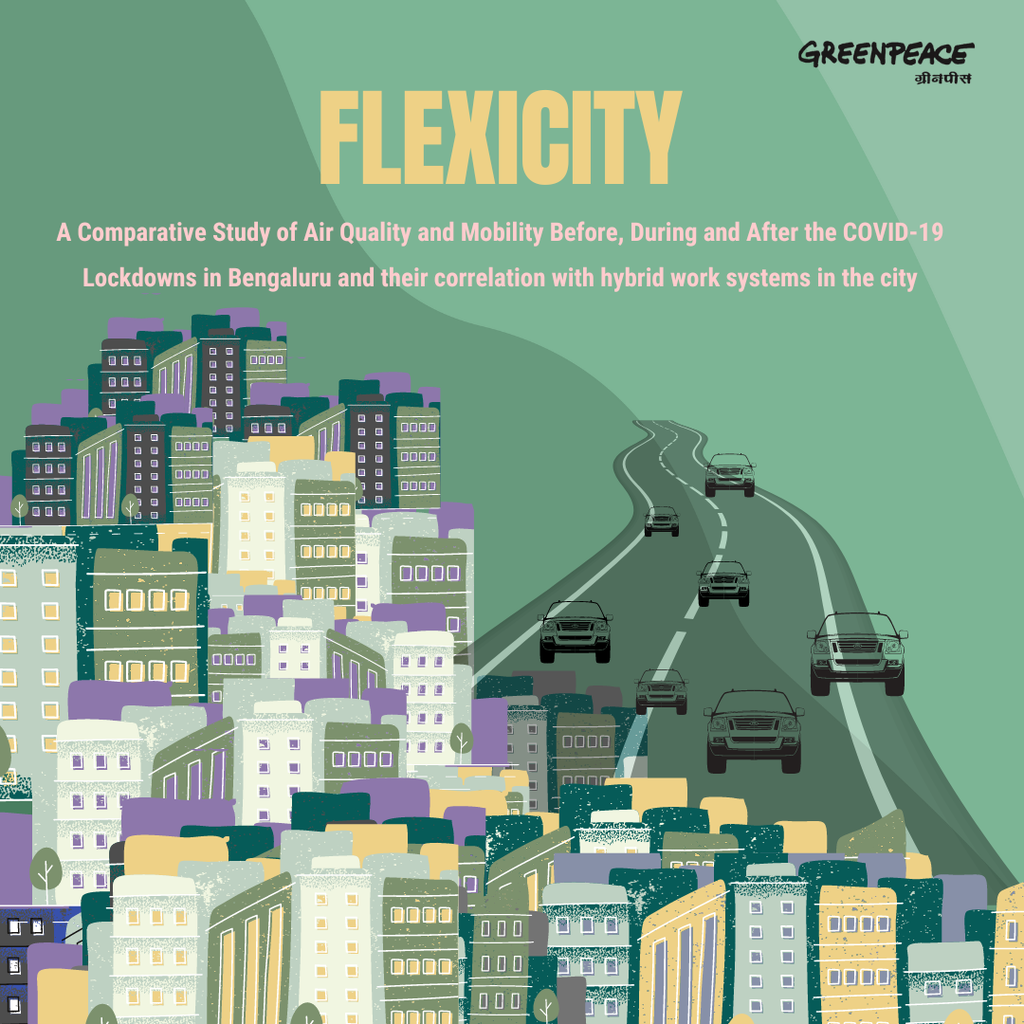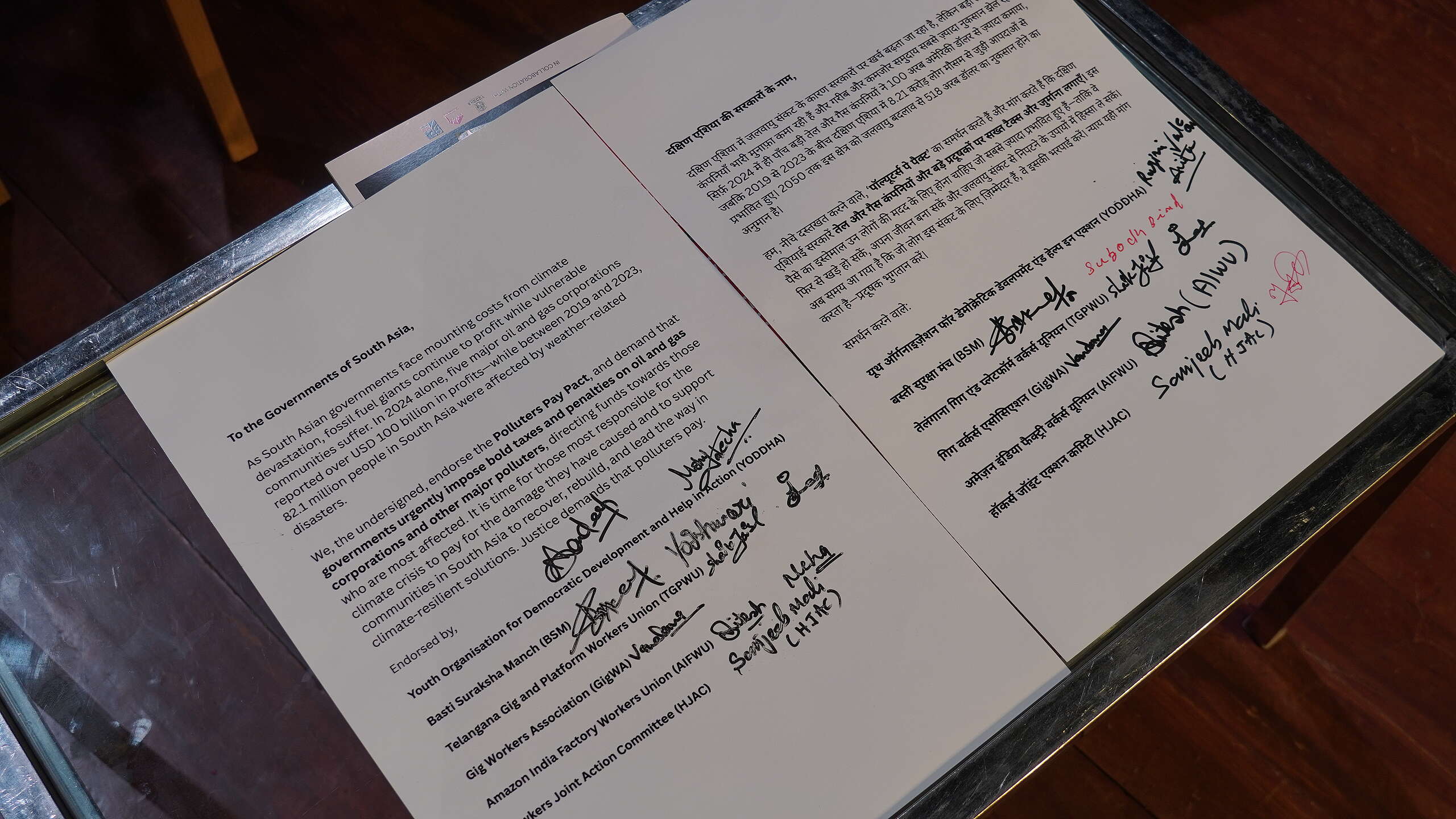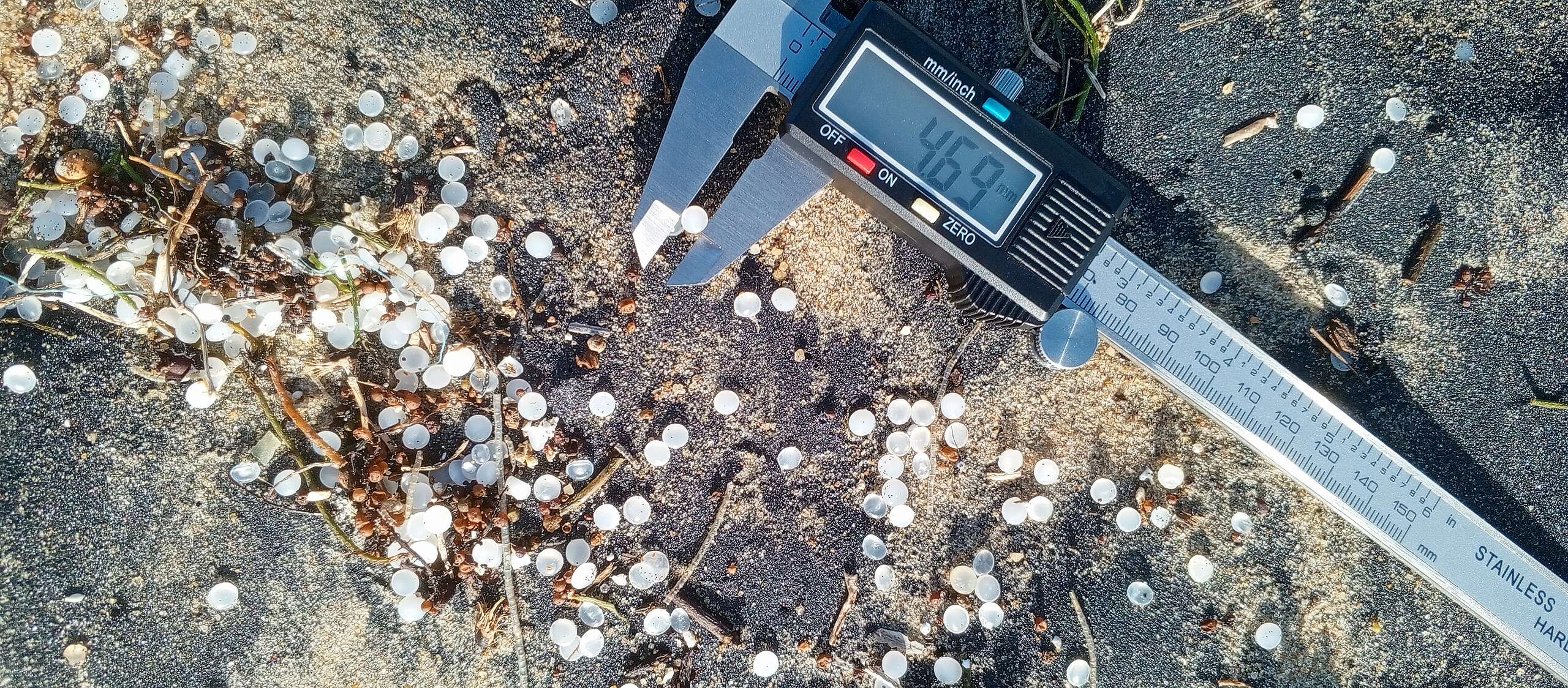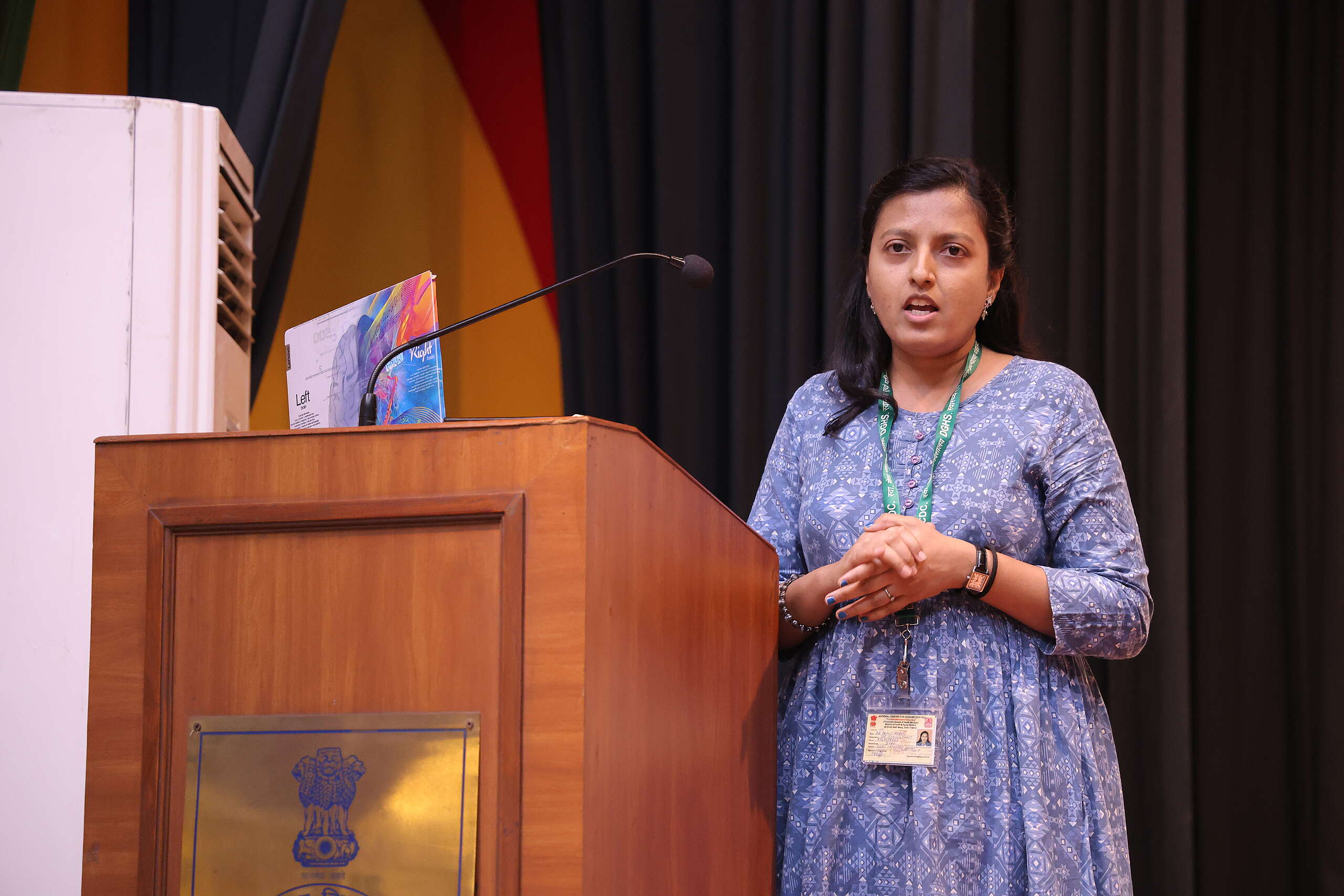11th August, Bengaluru: Greenpeace India’s latest report Flexicity is a comparative study of air quality and mobility patterns before, during and after the COVID-19 Lockdowns(2020) in Bengaluru and their correlation with hybrid work systems in the city. The study is intended to analyse the contribution of vehicular emissions to Bengaluru’s air quality and recommend mitigatory measures in the form of flexible, hybrid work systems.
The unsustainable growth of vehicular population in Bengaluru continues to aggravate traffic congestion, resulting in wastage of time and efficiency, while also shrinking the city’s green cover and worsening air pollution levels. Using data from the Google Community Mobility Report, the report identifies five primary traffic congestion points within the city for the comparative analysis of traffic data across the three time periods. The five roads identified within the municipal boundary of Bengaluru Urban are MG Road, Silk Board Junction, BTM Layout, Bapuji Nagar and Tin Factory.

The study observes high traffic movement during the pre-lockdown period (February to March 2020), which is close to the average traffic congestion levels in the city (established as the baseline). During the lockdown period (May 2020), a drastic 60 percent decrease in traffic density is observed, with corresponding decline in AQI to 61 from 95(in pre-lockdown months). Post-lockdown (October 2020), there is a 35 percent increase in traffic movement owing to lockdown restrictions being eased and onset of the festive season. The city’s AQI levels also show a steady increase in the post-lockdown period reaching pre-lockdown pollution levels over the months of October to December 2020. The improvement in air quality during the lockdown period is attributed to the sudden halting of various economic activities across the city. However, in the absence of major industrial clusters within city limits, the report considers vehicular emissions to be one of the significant contributors of air pollution(PM10) in Bengaluru.
| Month(2020) | AQI |
|---|---|
| February-March | 95 |
| May | 61 |
| October | 63 |
Avinash Kumar Chanchal, Campaign Manager at Greenpeace India said, “Private transportation in a highly congested city has many negative impacts on public health – both physical and mental – and environmental health, and there may be further long term consequences which need rigorous scrutiny. There is an urgent need to shift away from fossil-fuel dependent private transport usage and incentivise clean, sustainable and affordable public transportation options in Bengaluru. With this report, we aim to shine a spotlight on the significant role that big employers can play on the city’s air quality by introducing employee-friendly flexible work policies.”
The five traffic congestion points analysed in the report accommodate more than five hundred IT services and BPO companies in their vicinity. The findings make a strong case for these corporations to execute long-term hybrid, or flexible work policies, which are found to have a direct correlation with reduced vehicular emissions.
Greenpeace India’s Let’s Flex IT aims at highlighting the direct correlation between corporate work setup, mobility and air quality. The project aims to capture the positive impacts of flexible work policies on the environment and showcase one of the easier solutions to decongest our cities. A working leaderboard is also being set up to rank Bengaluru-based corporations on their deployment of innovative and sustainable work policies.



